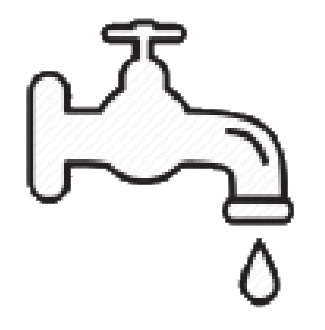
Before using bleach, check the chemical compatibility information on the safety data sheet(s) for the other chemical(s) or material(s) in the mixture. Never add bleach to an unknown compound or solution.
Combine Bleach with...
Could Result In...
Acids and Acidic Compounds
- Release of chlorine gas
Ammonium Salts, Amines, Nitriles
- Release of chloramine and hydrazine vapors
- Formation of explosive compounds
Guanidinium Salts (found in buffers
from many commercial kits)
- Release of toxic gases including chloramines, chlorine and hydrogen cyanide
Heat (e.g., from autoclaving)
- Release of chlorine gas
Hydrogen Peroxide
- Rapid and violent release of oxygen gas
Metals
- Release of oxygen (overpressurization of a closed system)
Organic Chemicals
- Formation of chlorinated organics
- Formation of explosive compounds
- Release of chlorine gas
Reducing Agents
- Production of heat (boiling or splashing)



Bleach is corrosive and can damage metal equipment. Wipe metal surfaces with water or 70% ethanol to remove bleach residues after disinfection.

After use, dilute bleach solutions that contain no other chemical hazards can be disposed down the drain with excess running water.
Adapted from UCLA EH&S Guidance
